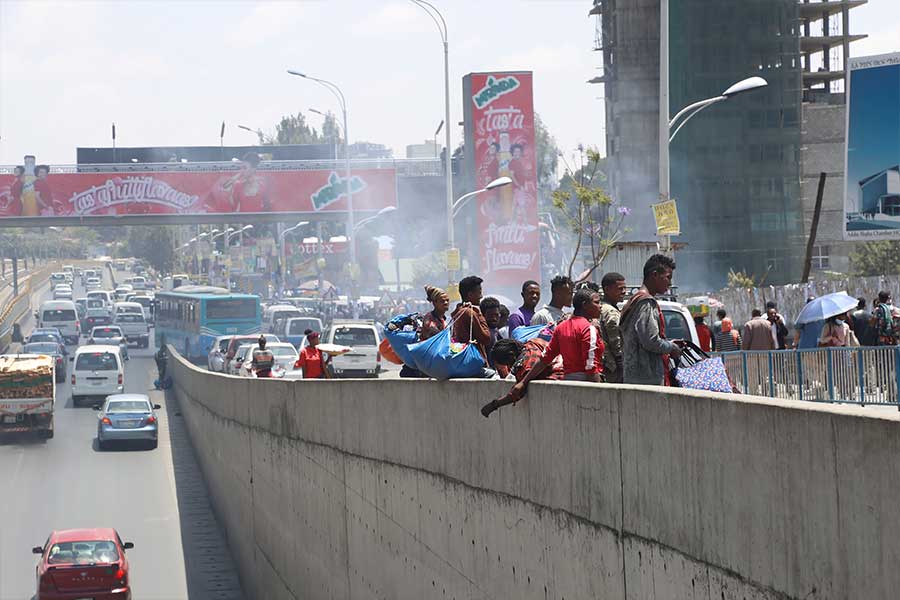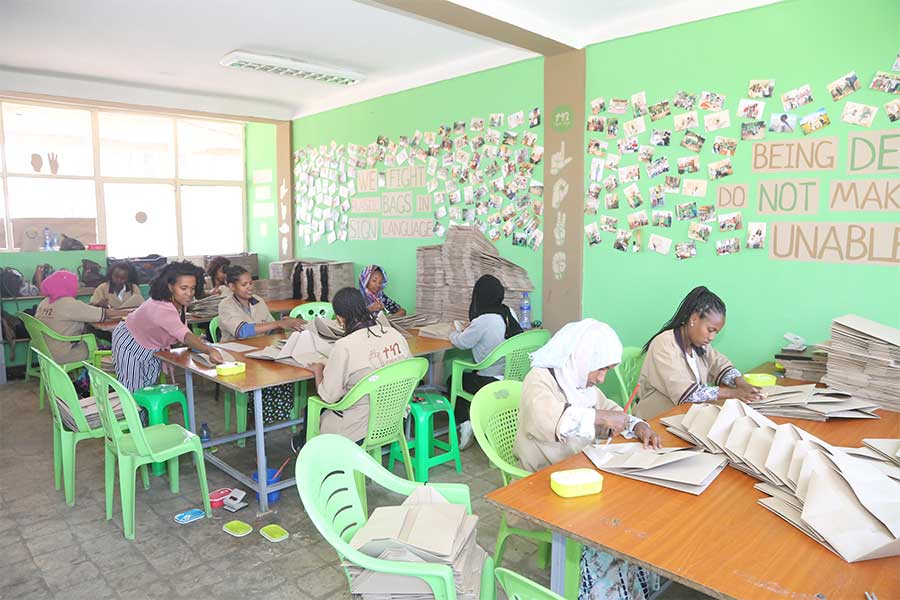
Radar | Mar 14,2021
May 18 , 2024
By Kidist Yidnekachew
I recently caught up with a former classmate from my postgraduate program, and our conversation took an unexpected turn when she revealed a shocking truth - she no longer possessed her degree. I was stunned, recalling her successful defence a day before mine. She explained that an examiner suggested revisions that might improve her grade. Initially hesitant, especially being close to giving birth, she eventually agreed. But life's demands intervened.
She gave birth and never submitted the revisions. When verifying her credentials for a job years later was necessary, the university questioned the missing revisions. Despite her explanations and the department's support, the campus board ultimately invalidated her degree.
Over coffee, she recounted the saga, detailing how subsequent family responsibilities and unexpected events hindered her from completing the process. It did not mean much for the university management. In the end, the institutional rigidity had left her without her hard-earned academic credential. My anger simmered as she described the wasted months through a bureaucratic maze. Her story left me speechless and resonated with a deep sense of injustice. Years of effort, money, and dedication seemed erased by an administrative hurdle.
While upholding academic integrity is important, universities must find a way to recognise extenuating circumstances. A readily accessible online record system with clear revision timelines could have made a world of difference.
The system failed her. But universities' shortcomings run deeper. The process to get a clearance or other related services such as getting student copies feels like an outdated maze. Juggling work and family from afar, phone inquiries are met with dead ends. Missing files, bureaucratic hurdles, and a general lack of empathy from the registrar's office is a recurring theme. It felt like a system designed to make students pass through obstacles instead of supporting their success.
My own experience echoed hers. Years ago, collecting my degree turned into a battle at the entrance due to a security guard clinging to outdated protocols. Lack of digitisation, empathy, and clear communication is evident. No wonder my friend, facing similar hurdles and living far away, opted for phone calls. The process discouraged in-person attempts.
Bureaucracy and lack of adaptability is a barrier for getting services in academic institutions. This inertia coupled with the reluctance to embrace digitisation fully, leaves many students and alumni stranded in a quagmire of administrative hurdles. The human cost of such inefficiency is unacceptable.
In a digital age where information flows seamlessly across borders and boundaries, the archaic practices of manual paperwork seem downright unjust. But, these are the very challenges that many students and alumni face when attempting to go through bureaucratic space of academia.
We need to fight for a better system where unprecedented issues are dealt with thoughtfully. We cannot give up the fight. Students, alumni, and faculty should play a role, advocating for online portals for document submission and retrieval, with clear instructions and progress tracking.
Universities should invest in user-friendly interfaces and staff training to improve communication and empathy. Student support services should be accessible online and offer flexible options for those juggling life's demands. By demanding change, we can transform universities into institutions that truly support student success, both during their studies and beyond.
PUBLISHED ON
May 18,2024 [ VOL
25 , NO
1255]


Radar | Mar 14,2021

Featured | Nov 02,2019

In-Picture | Aug 04,2024

Viewpoints | Apr 24,2021

Editorial | Jul 10,2021

Photo Gallery | 174216 Views | May 06,2019

Photo Gallery | 164441 Views | Apr 26,2019

Photo Gallery | 154591 Views | Oct 06,2021

My Opinion | 136653 Views | Aug 14,2021
Editorial | Oct 11,2025

Dec 22 , 2024 . By TIZITA SHEWAFERAW
Charged with transforming colossal state-owned enterprises into modern and competitiv...

Aug 18 , 2024 . By AKSAH ITALO
Although predictable Yonas Zerihun's job in the ride-hailing service is not immune to...

Jul 28 , 2024 . By TIZITA SHEWAFERAW
Unhabitual, perhaps too many, Samuel Gebreyohannes, 38, used to occasionally enjoy a couple of beers at breakfast. However, he recently swit...

Jul 13 , 2024 . By AKSAH ITALO
Investors who rely on tractors, trucks, and field vehicles for commuting, transporting commodities, and f...

Oct 11 , 2025
Ladislas Farago, a roving Associated Press (AP) correspondent, arrived in Ethiopia in...

Oct 4 , 2025
Eyob Tekalegn (PhD) had been in the Governor's chair for only weeks when, on Septembe...

Sep 27 , 2025
Four years into an experiment with “shock therapy” in education, the national moo...

Sep 20 , 2025
Getachew Reda's return to the national stage was always going to stir attention. Once...

Oct 12 , 2025
Tomato prices in Addis Abeba have surged to unprecedented levels, with retail stands charging between 85 Br and 140 Br a kilo, nearly triple...

Oct 12 , 2025 . By BEZAWIT HULUAGER
A sweeping change in the vehicle licensing system has tilted the scales in favour of electric vehicle (EV...

Oct 12 , 2025 . By NAHOM AYELE
A simmering dispute between the legal profession and the federal government is nearing a breaking point,...

Oct 12 , 2025 . By NAHOM AYELE
A violent storm that ripped through the flower belt of Bishoftu (Debreziet), 45Km east of the capital, in...